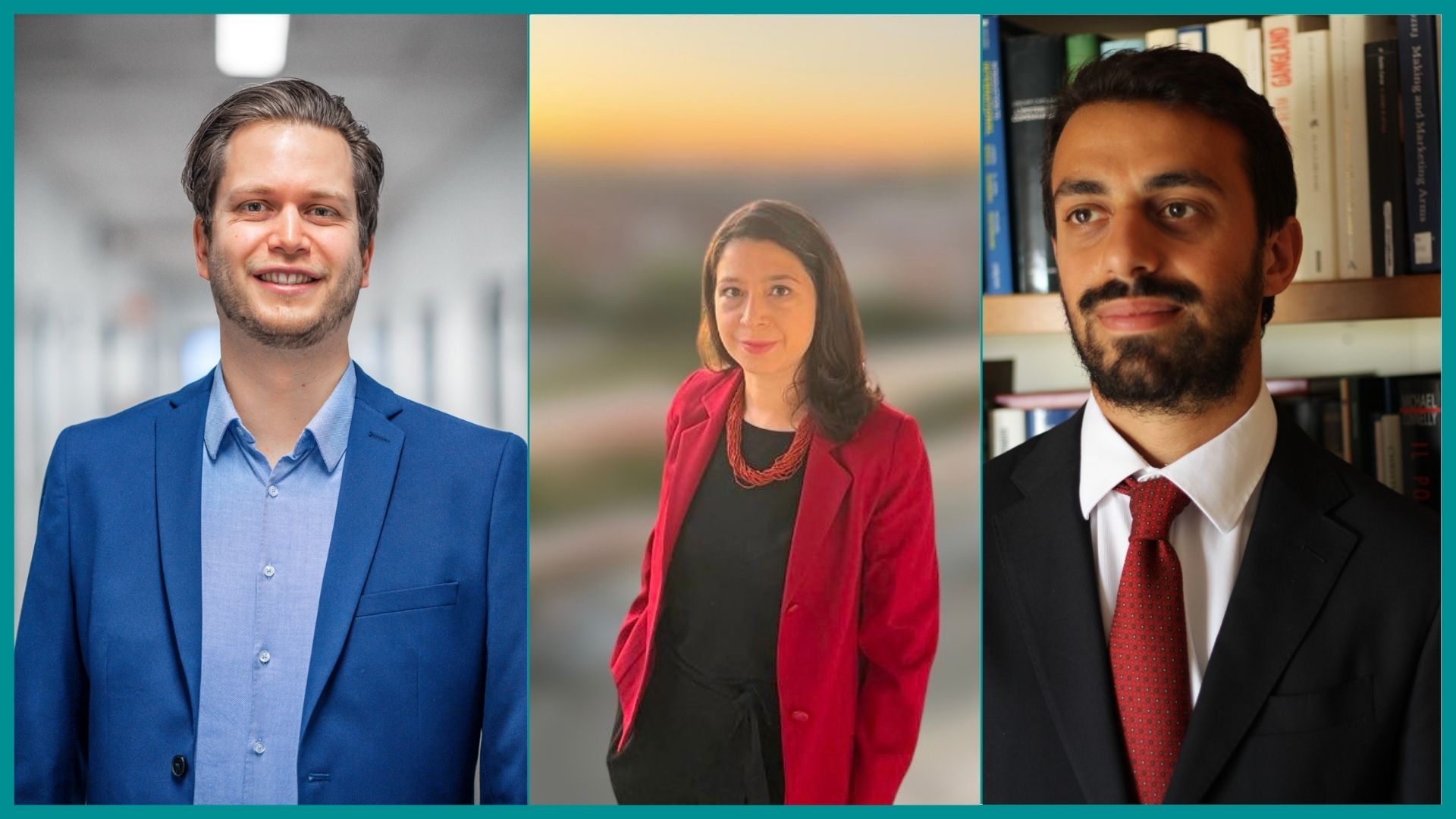The European Research Council grants are among the most prestigious sources of funding within scientific research. Three young scientists from UAntwerp are part of the latest batch of laureates: they will receive a Starting Grant.
Jonas Hereijgers (Applied Engineering), Gamze Erdem Türkelli (Law), and Antonio Calcara (Political Science) were awarded prestigious Starting Grants. They will each receive €1.5 million for their research projects, which will run for five years.
Battery 2.0
With his RECHARGE project, Prof. Jonas Hereijgers focuses on improving flow batteries, a technology used to, for example, store solar and wind energy. Unlike in a conventional battery, in a flow battery the fluids are not stored in the battery itself, but rather in two external tanks.
Prof. Hereijgers’ research aims to improve the flow battery in two ways. ‘In the current generation of batteries, the liquid is propelled with a constant force. By pumping the chemicals around in pulsating waves, you can optimise transport. In addition, I also want to fine-tune the structure of “the sponge” in the fuel cell by arranging its pores as efficiently as possible.’
‘Multistakeholder partnerships and human rights’
The second UAntwerp researcher to be awarded a Starting Grant is Prof. Gamze Erdem Türkelli. With her project ‘GENESIS’, she wants to examine the place multistakeholder partnerships (MSPs) – a type of collaborative partnership – occupy within international law. Her research focuses on MSPs working to promote access to clean water, food, health care and education. ‘These are all fundamental human rights that every human being can claim. But how do you know if the public good is delivered in line with human rights standards through an MSP? Within which legal framework do these structures operate? Those are questions I hope to answer in the next few years.’
Geopolitical ladder
Last but not least, Dr Antonio Calcara has been awarded an ERC Starting Grant for his project ‘CODE’ or ‘Competition in the Digital Era: Geopolitics and Technology in the XXI Century’. His research aims to better understand the role technology plays in today’s geopolitics. ‘World politics and technological innovation are more intertwined than ever’, Dr Calcara explains. ‘Power is about more than just a big army or strong economy. Those who bet on technological innovation in this era can assert themselves on the world stage.’










